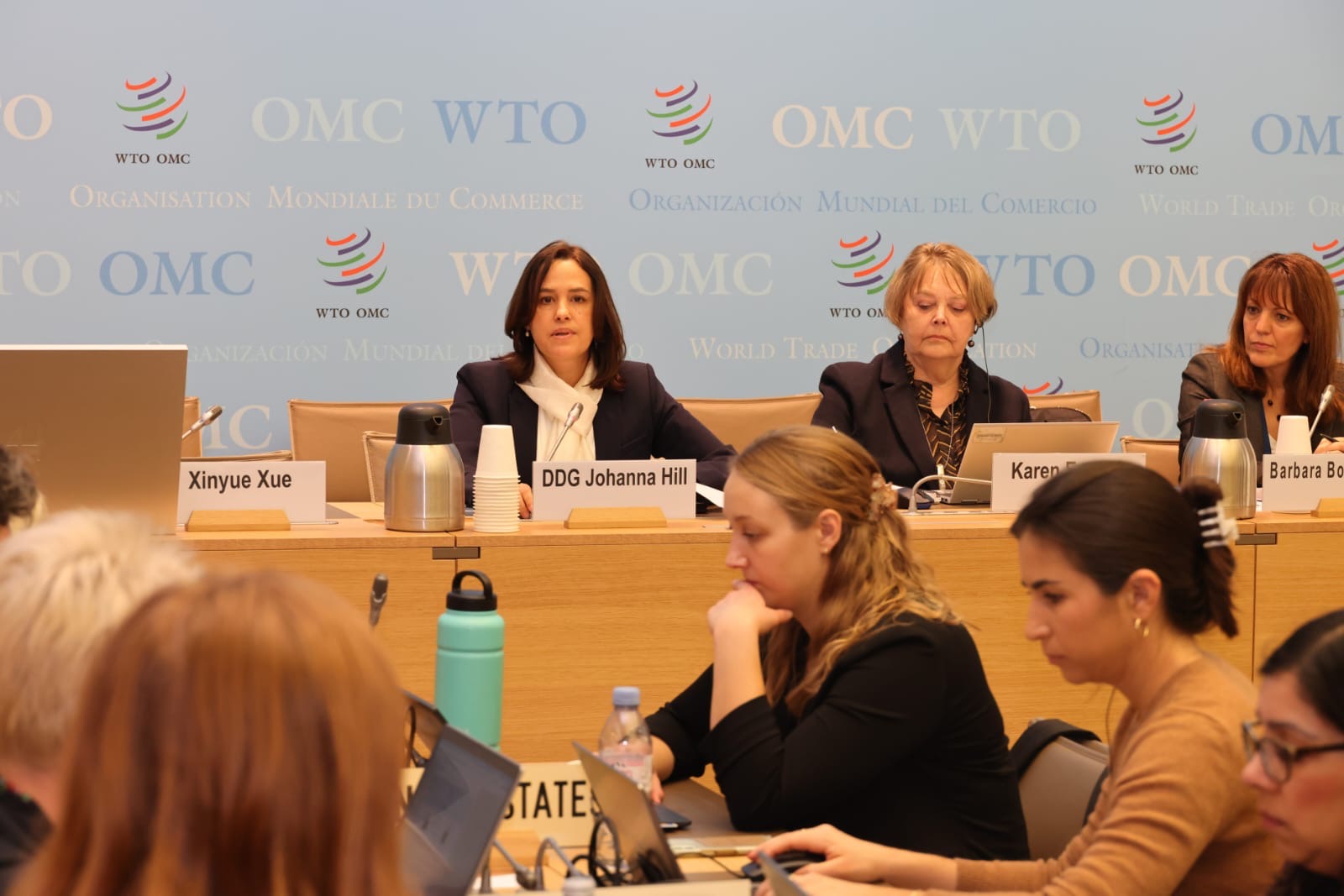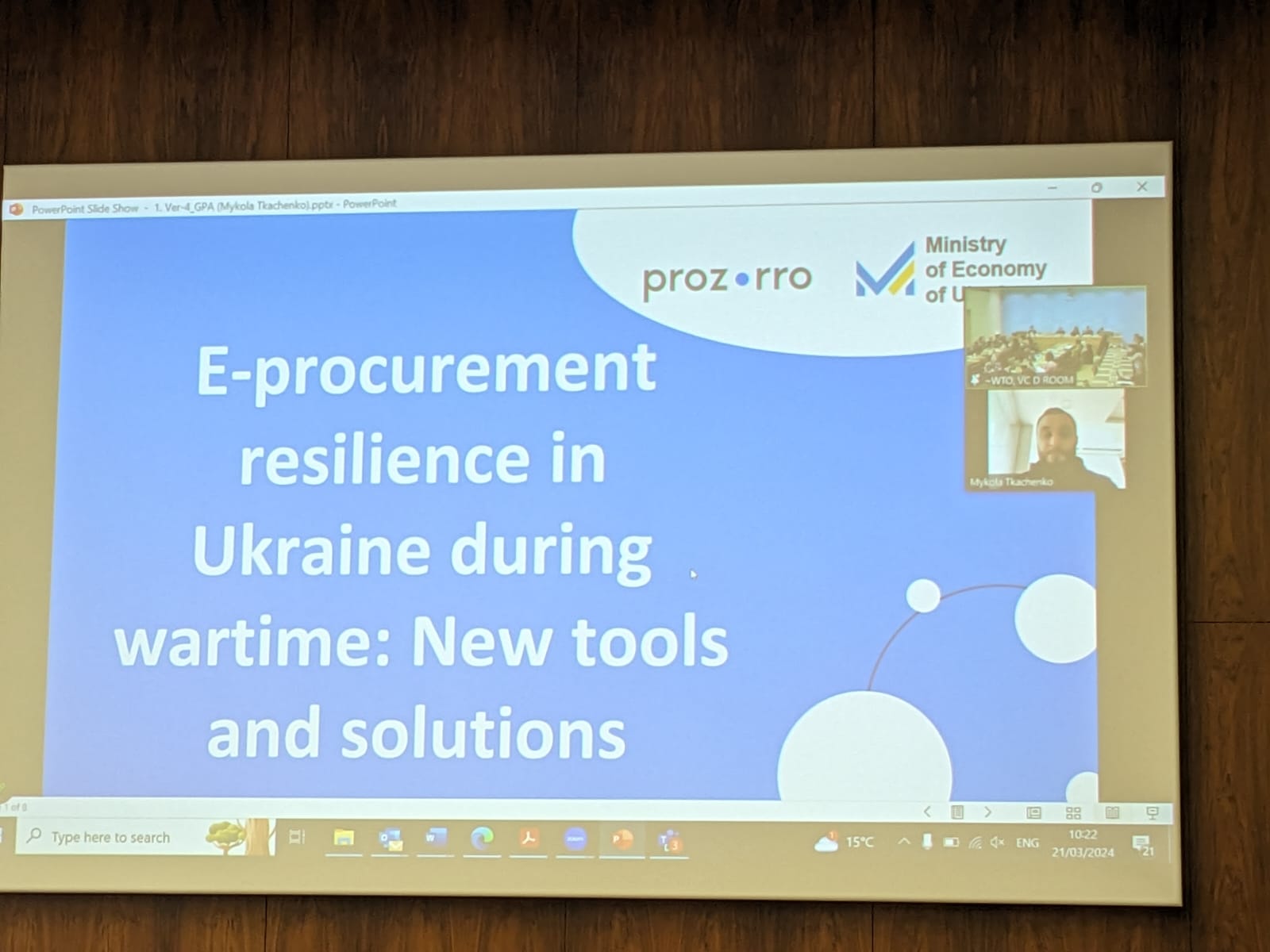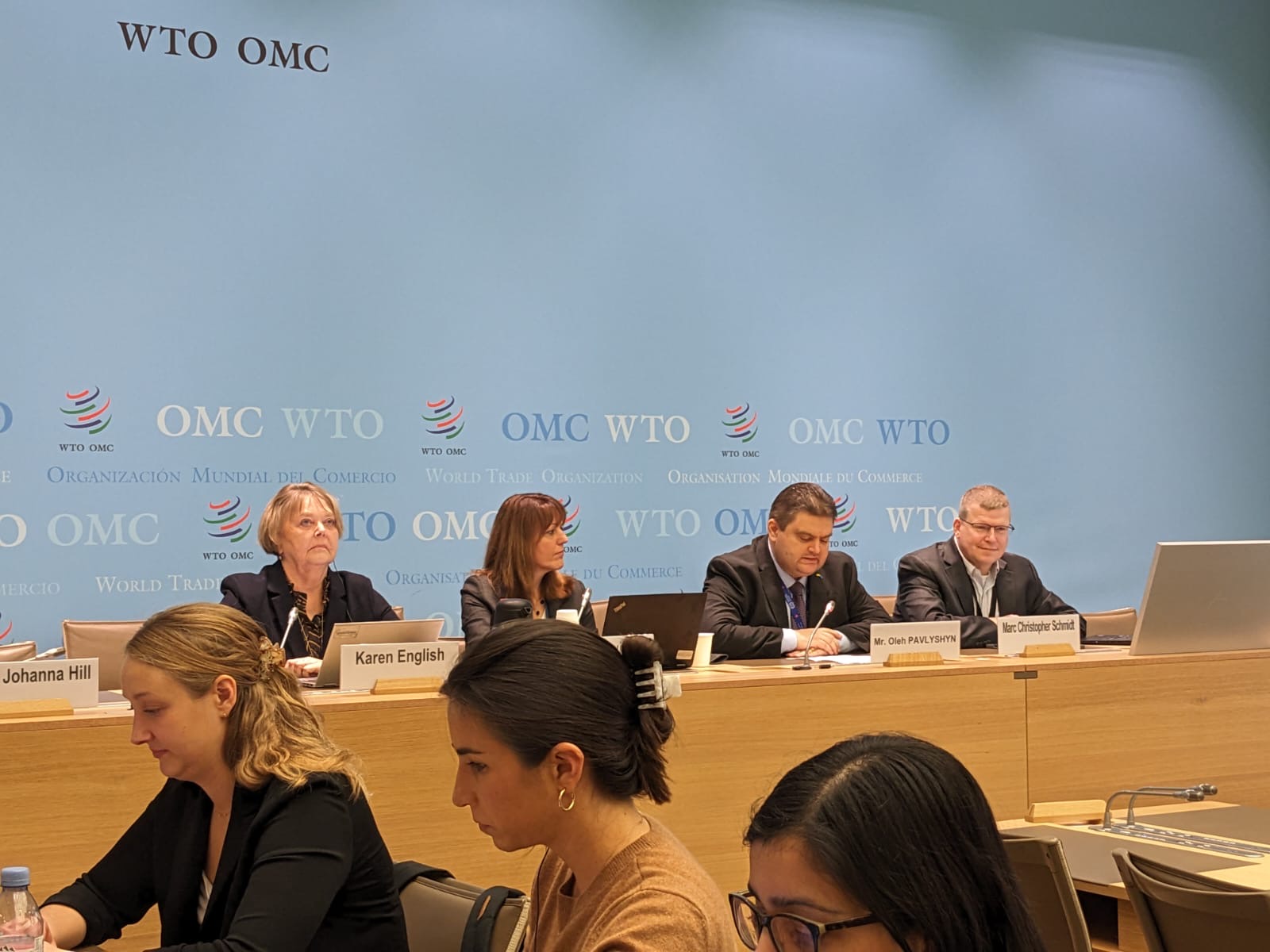EU4PFM Public Procurement Expert participates in WTO workshop on the role of digital innovation in supporting trade and competition in public procurement
On 21 March, the WTO Committee on Government Procurement held an information-sharing workshop in Geneva for countries that are parties to the Government Procurement Agreement (GPA).
The topic of the workshop was “How can digital advances support trade and competition in government procurement?”. Oksana Kamianetska, an expert on international cooperation and communication in public procurement from Component 2 of the EU4PFM Project, attended the event to support the work of the Ministry of Economy’s Public Procurement and Competition Policy Department.
The workshop aimed to enhance comprehension of digital procurement’s opportunities and challenges. It highlighted various ways of using digital technologies in public procurement, including artificial intelligence.
The workshop comprised two sessions that discussed global best practices in the use of technology in public procurement, as well as new opportunities and risks posed by digital tools and algorithms.
The event also gathered the Deputy Director-General of the World Trade Organisation, Johanna Hill, Deputy Permanent Representative of Ukraine to the UN Office in Geneva Oleh Pavlyshyn, Head of International Value Chains Unit at DG GROW Barbara Bonvissuto and representatives of government agencies from various countries and international organisations.
During the discussion, participants highlighted the significance of digital tools in enhancing public procurement. They also identified potential issues that may arise during the implementation of these tools. Mykola Tkachenko, Director of ProZorro, shared his experience of managing public procurement in the context of russia’s military aggression.
The use of new digital tools and algorithms can significantly improve procurement processes. Implementing digital tools can automate tasks, enable predictive analytics, improve decision-making, facilitate efficient supplier selection, and aid in fraud detection. However, the introduction of new digital tools also poses challenges related to transparency, clarity, and governance, as well as privacy risks. The GPA Committee’s future work will include addressing these issues and finding ways to overcome challenges in developing and implementing new digital tools for public procurement in GPA Parties.
The final discussion emphasised the need to address challenges in developing and implementing new digital tools for public procurement.
The event confirmed that digital technologies are crucial for the effective functioning of procurement systems. It also highlighted Ukraine’s willingness to collaborate with other GPA Parties to achieve common goals in the development of digitalisation of public procurement.




